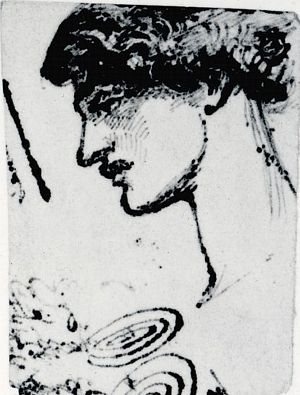One whose task is joyfully to see.
Bundled into the day with Middlemarch has come the chance, after several days, to read Calvin Trillin's essay about his wife Alice (who died in September 2001 of heart failure brought on by a decades-long battle with cancer) in this week's New Yorker. I'm meditating on marital subjectivity and memory these days, chiefly for work-related reasons, so "Alice, Off the Page" has come as a great boon. The essay isn't available online, but if you're not a subscriber, you should shell out the $3.99 at your local newsstand (or what have you), just to read pages 44-57 in the March 27 issue. If Middlemarch ultimately turns out to be about the dark side of how "[m]arriage is so unlike everything else," how "[t]here is something even awful in the nearness it brings," then Trillin's tribute to his wife is about the loveliness of that unparalleled, awe-striking nearness. It is the second such tribute I've had my heart broken by in the past six months; the first was Joan Didion's The Year of Magical Thinking, which came out late last year and deserved all the acclaim it received, and then some more.
Yet somehow, despite the proximity of all these texts to one another, the best I can do for you this evening is not to thread words of my own together into thought (and, I hope, some degree of beauty) but rather to offer you a poem. I thought about giving you one by the poet who surprised my week so quietly and intensely and thoroughly, but instead, I'm diving back into my personal archives for a poem one of my dearest, oldest friends sent me back in the summer of 1999. It's a little early in the year for this one, particularly on a day that's seen everything from pelting sleet to cold, heavy rain, but everything else about it is right for now, for me. (Click the poem for an enlarged and more easily readable version.)
 The New Yorker (June 14, 1999)
The New Yorker (June 14, 1999)

0 Comments:
Post a Comment
<< Home